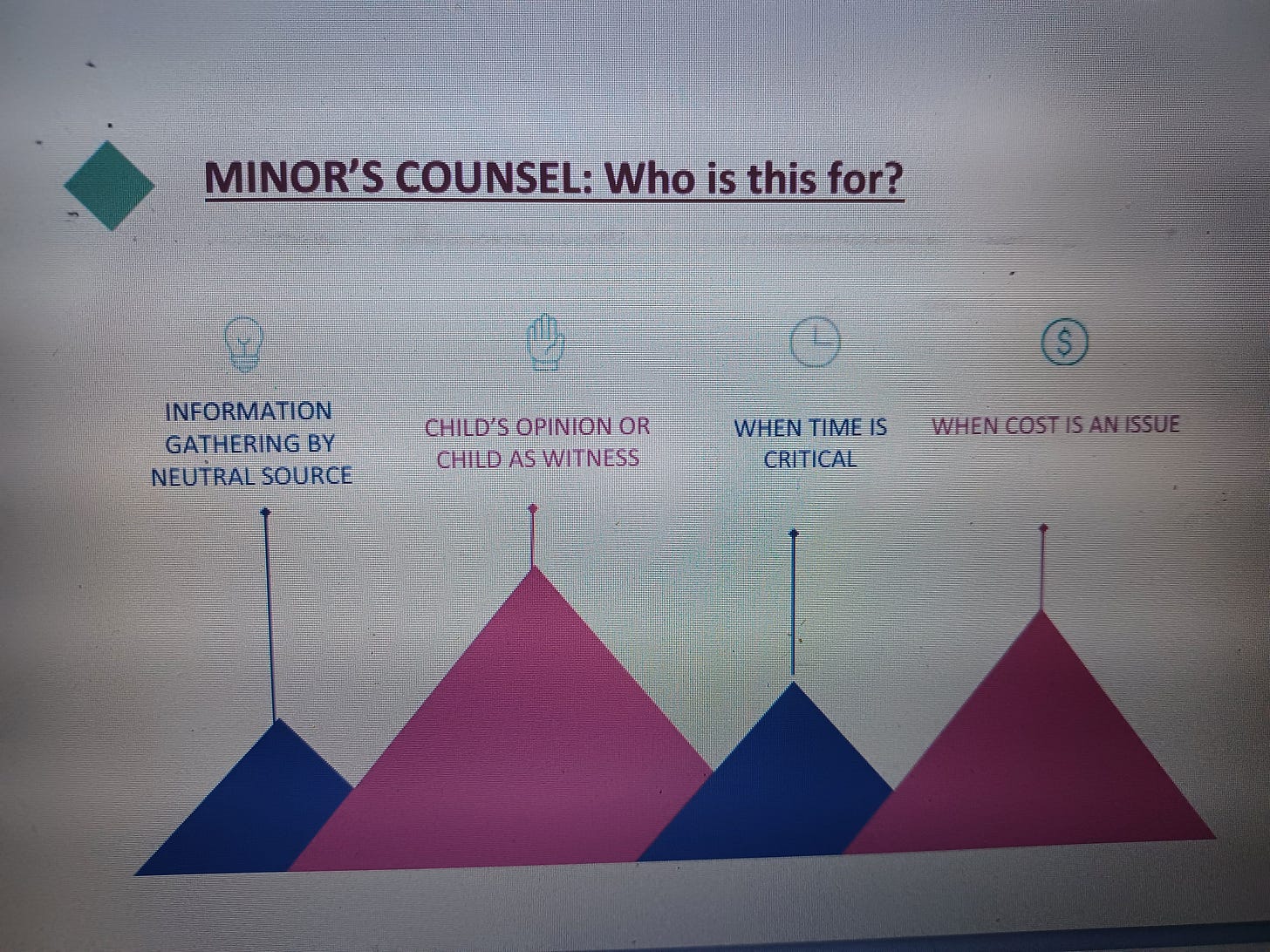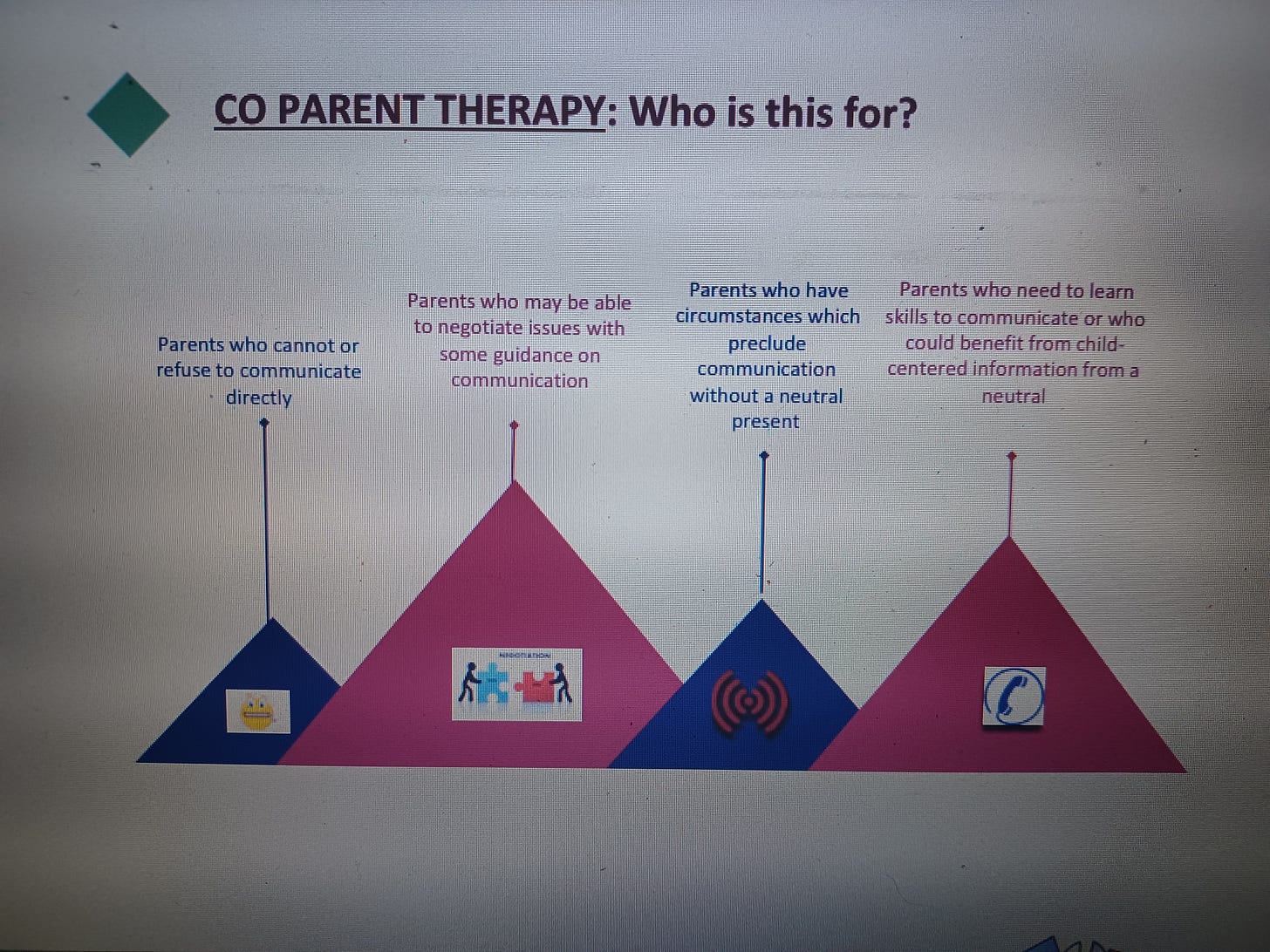Talking Racketeering in Orange County and Beyond on The Imagination Podcast
I sat down with Emma to discuss how the principles laid out in the OC webinar are used in family courtrooms all over the country.
I joined Emma on her podcast The Imagination again.
This time we talked about how racketeering is engineered in Orange County and beyond.
We discussed the webinar slides which a group players from the Orange County, California family court system made for the Orange County BAR Family Law Division.
Find the article here.
As I’ve previously noted, the webinar, upon first glance, does not seem that problematic.
One slide is below.
The first sign of trouble comes in a statement made in the middle, “Webster’s Family Law Definition of ‘I just want to protect my children.’ Translation? ‘I just want to screw my ex.’”
This is part of the contemptuous attitude many courts have toward abuse allegations made during custody disputes; they aren’t merely skeptical of these allegations, but most courts are hostile.
As I noted in the podcast, the entire webinar is quite frightening: entitled, “Child Custody Solutions: What Options Are Available and When to Use Them.”
By options, the webinar means the appointment of court professionals like a minor’s counsel or co-parenting therapist.
As I told Emma, family courts are designed to identify problems- often problems they help to create- and the solution is always to appoint someone.
That someone then charges the parents hundreds of dollars per hour.
One example of how this plays out in Orange County came from this article.
In one portion of the transcripts, the minor’s counsel asks off the case, but not before recommending that another court professional come on.
The case was getting too hot for this minor’s counsel, but they still saw the need to get someone else involved.
“This case is very deep and broad and lengthy and there are a lot of thinks that have happened consistently in this case that need to be assessed by a 730 evaluator.”
A 730 evaluator is a California code for a custody evaluator.
It’s not clear in this case- or in any case- why a 730 evaluator can find the solution when a minor’s counsel could not, but those details are not important to the racketeers.
Instead, the system drives to get appointed, maximized billable hours, and then lobby for as many of their friends to get appointed as well.
This was illustrated in a Connecticut case I covered: Heidi Holmes.
As she explained, her ex-husband accused her of parental alienation, and, in conjunction, his attorney pushed for a guardian ad litem (GAL): Mary Bergamini.
That GAL would later recommend the appointment of a therapist, Dr. Janet Schrager, and Dr. Shrager would recommend some evaluations.
This is, of course, how the system feeds on itself. It identifies problems and then uses those problems to justify the appointment of numerous court professionals.
Dr. Schrager charged $200 per hour while Bergamini charged $125 per hour, she told.
Heidi told me that Bergamini would attend the sessions that she and her daughter had with Dr. Schrager.
Two other cases which originated in Orange County- that of Donna McCracken and Christie Black- also featured numerous court appointees costing the parents hundreds of thousands of dollars.
Christie’s case, which started in 2014, is still not complete approximately eight years later.
If nothing is resolved after about eight years, what did all these court appointees accomplish?
The truth is that they are not appointed to the case to solve any problems. Their role in the system is maximize their own billable hours and to try and get as many others appointed to the case as well.
Check out my previous appearance on The Imagination Podcast below.
Post Script:
Find the previous articles in this series: Part 1, Part 2, Part 3, Part 4, Part 5, Part 6, Part 7, Part 8. Part 9, Part 10, Part 11, Part 12, Part 13, Part 14, Part 15, and Part 16.
To support more stories like this check out the Orange County fundraiser.







